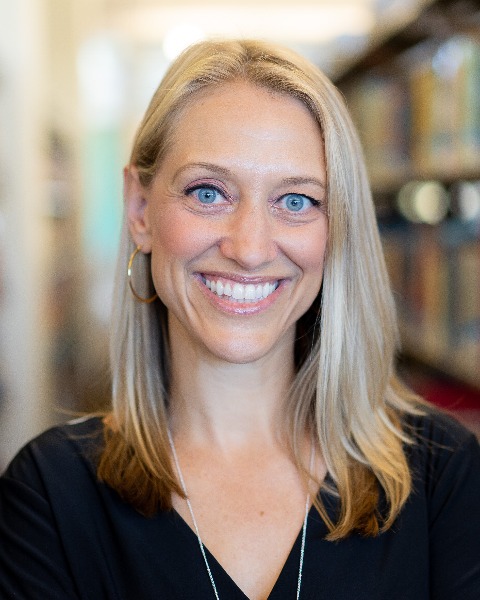Back
Technology Innovation
Beyond “Fake News”: Updated Strategies in Digital Literacy, Misinformation, and Bias Instruction
Sunday, January 29, 2023
1:00 PM – 2:15 PM
Location: Morial Convention Center, Room 283-285
Level of Participation: High
Please note: this session included individual or small group work so there will be breaks in the presentation.
Today’s digital information environment is ripe with misinformation and disinformation, rapidly fracturing social trust and creating an unparalleled epistemic crisis. Curbing the spread of misinformation through technological interventions or regulations is fraught with issues, making improved information and digital literacy skills our best bulwark against a polluted information environment. With the majority of students getting their news from TikTok, Instagram, YouTube, Reddit, and Twitter, there are even greater concerns over how our students (and their families) identify, find, evaluate and apply information. Drawing from a two-year case study from the University of Utah and Granite School District, participants will learn about successful collaboration, “Digital Literacy Workshops for secondary teachers” between K-12 and higher education to provide learning experiences for young people and adults alike. Using the framework of the “6 R’s of information literacy - recognizing triggers, retracing the outrage, reflecting on your own biases, rethinking what going viral means, resisting the urge to be first, and revisiting common sense - the content leaders will guide participants through an extensible, interactive curriculum that can be adapted for multiple audiences. Working individually and in small groups, participants will have the opportunity to be online investigative detectives using reverse Google Image Search and Google Maps, purveyors of misinformation in a gamified online environment to rack up social media followers, and identify triggers and personal bias. This curriculum utilizes Claire Wardle’s “Seven Kinds of Misinformation” for participants to think critically about the kind of information being shared, who is sharing it, what methods they are using and the motivations behind those who knowingly and unknowingly distribute misinformation. Intentionally moving beyond the over-simplified “fake news,” this session uses evidence-based, practical instruction to think like a fact checker, hone “critical feeling” and critical thinking skills, and better understand the factors that contribute to our complicated, and often contaminated, information environment.
Today’s digital information environment is ripe with misinformation and disinformation, rapidly fracturing social trust and creating an unparalleled epistemic crisis. Curbing the spread of misinformation through technological interventions or regulations is fraught with issues, making improved information and digital literacy skills our best bulwark against a polluted information environment. With the majority of students getting their news from TikTok, Instagram, YouTube, Reddit, and Twitter, there are even greater concerns over how our students (and their families) identify, find, evaluate and apply information. Drawing from a two-year case study from the University of Utah and Granite School District, participants will learn about successful collaboration, “Digital Literacy Workshops for secondary teachers” between K-12 and higher education to provide learning experiences for young people and adults alike. Using the framework of the “6 R’s of information literacy - recognizing triggers, retracing the outrage, reflecting on your own biases, rethinking what going viral means, resisting the urge to be first, and revisiting common sense - the content leaders will guide participants through an extensible, interactive curriculum that can be adapted for multiple audiences. Working individually and in small groups, participants will have the opportunity to be online investigative detectives using reverse Google Image Search and Google Maps, purveyors of misinformation in a gamified online environment to rack up social media followers, and identify triggers and personal bias. This curriculum utilizes Claire Wardle’s “Seven Kinds of Misinformation” for participants to think critically about the kind of information being shared, who is sharing it, what methods they are using and the motivations behind those who knowingly and unknowingly distribute misinformation. Intentionally moving beyond the over-simplified “fake news,” this session uses evidence-based, practical instruction to think like a fact checker, hone “critical feeling” and critical thinking skills, and better understand the factors that contribute to our complicated, and often contaminated, information environment.
Learning Objectives:
- Upon completion, participants will be able to articulate the problem of mis/dis-information and the complicated environment of online information in which it circulates.
- Upon completion, participants will learn about and develop resources to teach about misinformation and to help students/families assess the accuracy and credibility of the information that they find online.
- Upon completion, participants will learn about successful collaboration across K-12, Higher Ed, and public libraries to further education around misinformation.

Rebekah Cummings, MLIS (she/her/hers)
Digital Matters Interim Director
University of Utah- DS
Davina Sauthoff, MBA, K12 School Library Media Endorsement (she/her/hers)
State Library Media Specialist
Utah State Board of Education
